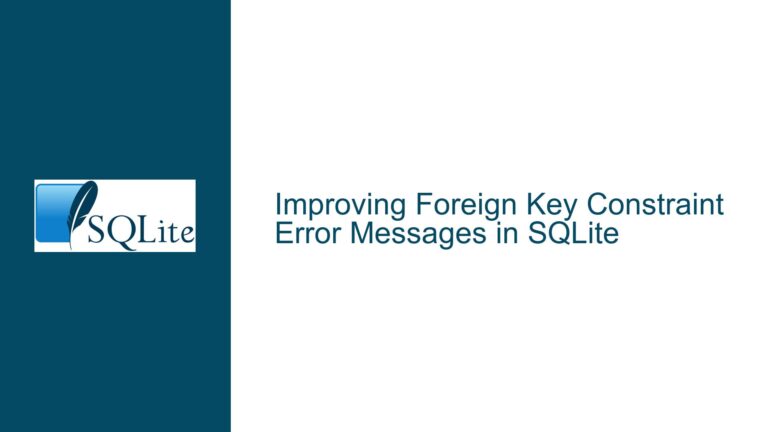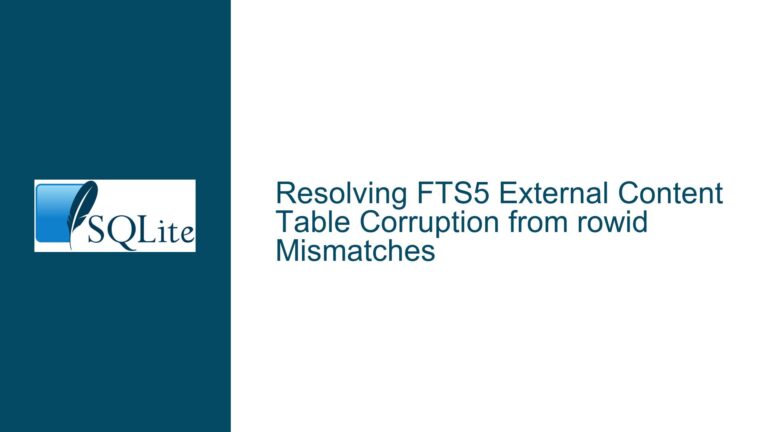Properly Deleting Records from FTS5 External Content Tables in SQLite
Issue Overview: FTS5 External Content Table Deletion Mechanics and Order Dependency When working with SQLite’s FTS5 virtual tables configured to use external content (via the content= option), managing deletions requires a nuanced understanding of how the full-text search index interacts with the underlying source data. The core challenge arises when attempting to delete records from…









